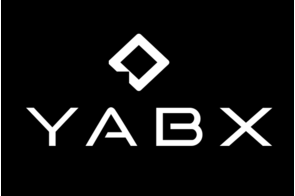Latest News
Web seminar by DETAIL advises tech companies to prioritise tax compliance

News Highlight
How the FIRS will get companies operating in the digital and fintech space into the Nigerian tax net is seen as a fundamental issue.
Legal and tax advisory experts connected at the DETAIL Webinar Series to examine the new tax regime and its effects on tech companies and start-ups within and outside the Nigerian digital space. The webinar, which held on Thursday, June 10, 2021, was organized by Detail Commercial Solicitors (DETAIL), one of the top law firms in Nigeria and the first law firm in the country to specialize exclusively in non-courtroom practice.
Speaking on the purpose of the event, Temiloluwa Sotonwa, a solicitor at DETAIL, stated that the webinar series was created based on one of the firm’s core values, which is thought leadership, adding that the webinar series serves as a platform for industry experts to analyse topical issues that affect businesses and the economy.
Moderating the event was Chukwudi Ofili, Associate Partner, at DETAIL. He noted that the webinar was necessitated by the increasing shift and focus to online services and products and the need for regulation of the tech ecosystem to catch up with the innovation. The panel session comprised of Akinwale Alao (Associate Director, KPMG), Anthony Ezeamama (Senior Associate, DETAIL) and Titilayo Akinseye (Tax Manager, Interswitch Limited).
With the new developments and provisions introduced by the Finance Act, 2020, the Significant Economic Presence (SEP) Order and other provisions of the law which provide new rules on non-resident companies (NRCs), a major issue of discussion of the event was how the Federal Inland Revenue Service (FIRS) will ensure and enforce regulatory compliance by the NRCs.
In his opening remarks, Akinwale pointed out that there are no distinct tax laws created specifically for companies in the digital space, aside the current provisions of the various tax laws operational in Nigeria. He further emphasized that historically, the basis for a taxable presence is whether a company has a physical presence in Nigeria. However, by the SEP Order, an NRC that has no physical presence in Nigeria is liable to tax if it meets the requirements under the SEP Order.
Similarly, Anthony noted that the basis of taxation in the digital space is similar to the basis of taxation of companies in other sectors. He emphasized that the key focus is more on the changes and amendments brought about by the Finance Act as well as other relevant provisions of the Value Added Tax (VAT) Act and the Stamp Duties Act. In order to avoid being over-burdened by taxes, Anthony advised tech companies/start-ups to make tax compliance a priority while focusing on their tax structuring. He noted that the entire legal tax regime should be put into consideration while also making a checklist of what taxes or tax laws would apply to their businesses.
Titilayo pointed out that a fundamental issue is how the FIRS will get companies operating in the digital and fintech space into the tax net, which requires more work by the tax authorities. She stated that the recent changes in the Nigerian tax laws have resulted in an increased level of compliance as well as the cost of doing business. Titilayo also mentioned that contractual relationships entered into by businesses prior to these amendments were also affected, especially where the new tax provisions made some prior-existing contractual clauses contentious. She advised tech start-ups to always engage specialists (e.g. lawyers and other consultants) in order to be properly guided on existing laws, the effects of proposed changes of the law, as well as regulatory compliance.
The discussions at the event are available in this YouTube link.
Related News
Latest Blogs
- How Tinubu is ensuring equitable access to public services
- Nigeria’s economic reform faces new threats
- What Ould Tah’s tenure at BADEA reveals about his AfDB candidacy
- Implementation strategy crucial for the success of 12-4 education policy
- A senator’s suspension threatens the right of representation
Most Popular News
- Artificial intelligence can help to reduce youth unemployment in Africa – ...
- Nigeria records $6.83 billion balance of payments surplus in 2024
- Tariffs stir inflation fears in US but offer targeted industry gains ...
- Soaring civil unrest worries companies and insurers, says Allianz
- Rise in vaccine-preventable disease outbreaks is a threat, warn WHO, others
- IMF warns of global public debt approaching 100 percent of GDP









